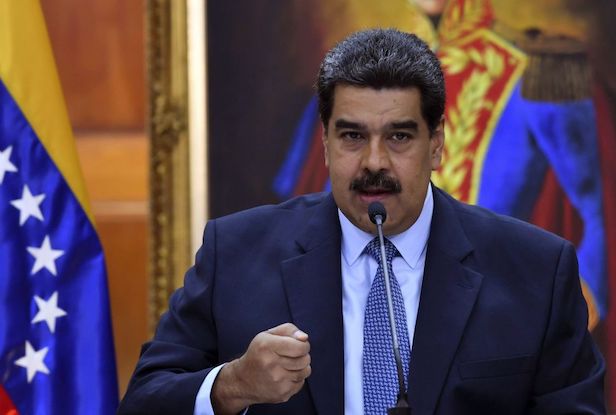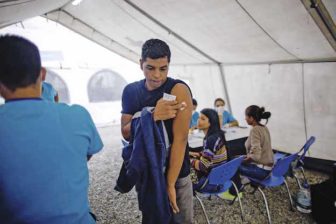When questioned about what the United States will do about Nicolás Maduro’s regime in Venezuela, the Trump administration tends to respond by saying “all options are on the table.”
This is the wrong response because it suggests that one of the options under consideration is military force. For important historical reasons, among others, it would be far better to refer to “all options that do not include military force” or, at the very least, “all options that do not involve unilateral military force.”
The historical reasons involve the record of the United States in intervening militarily over many years in many countries in the Western Hemisphere. The U.S. military has intervened in Haiti, Cuba, the Dominican Republic, El Salvador, Grenada, Guatemala, Nicaragua, Mexico, and Panama. Most of these interventions had bad outcomes.
The Maduro government lacks democratic legitimacy. Through misguided policies, corruption and incompetence, it has brought ruin to a relatively prosperous country. Millions of Venezuelans have been forced to flee to other countries in Latin America in search of the food and basic medicines that they need to survive. The Trump administration is fully justified in seeking an end to the Maduro regime.
But the manner in which the United States proceeds is immensely important. It would be best if Washington takes its lead from Venezuela’s neighbors, who are directly affected by the vast number of refugees who have crossed into their countries.
If humanitarian aid is to be delivered to Venezuelans, it would be best if it were under their auspices. The United States can provide assistance to help make this possible, but the Latin Americans should be in charge. Governments in the region have a compelling interest in helping Venezuelans stay in their own country rather than forcing its neighbors to cope with ever-larger numbers of refugees.
In 2005, at a summit convened by the United Nations, more than 150 governments, including the United States, unanimously adopted a resolution dealing with intervention in abusive countries, known as the Responsibility to Protect. It provided that “each individual state has the responsibility to protect its populations from genocide, war crimes, ethnic cleansing, and crimes against humanity.” It went on to endorse “collective action … should peaceful means be inadequate and national authorities manifestly fail (to exercise their responsibility).”
Since its adoption, the Responsibility to Protect has fallen into disfavor, mainly because the collective action in Libya that overthrew Moammar Gadhafi, authorized by the United Nations Security Council, left that country in chaos. Even if one accepts the concept of the Responsibility to Protect as still valid, it would not justify American military intervention in Venezuela. However reprehensible, the Maduro regime’s abuses do not constitute such crimes as genocide or crimes against humanity, and unilateral military intervention by the United States would not constitute collective action.
What’s more, concern that the repeated invocation of “all options are on the table” is a prelude to unilateral American military intervention has been heightened by Trump’s designation of Elliott Abrams as his official envoy for Venezuela. Abrams served in various posts in the Reagan administration in the 1980s in which he was deeply involved in American support for military regimes in El Salvador and Guatemala, as well as support for the contras seeking to overthrow the left-wing Sandinista government in Nicaragua.
Abrams became known as an apologist for atrocities committed in El Salvador and Guatemala – sometimes in televised debates with me. He pleaded guilty and was convicted for withholding information from Congress about U.S. support for the contras (former President George H.W. Bush later pardoned Abrams). Appointing Abrams as the U.S. envoy does not reassure those who oppose American military action in Venezuela.
Just how to go about ousting Maduro is a difficult question. As long as his regime retains the support of the Venezuelan armed forces, it may not be possible for Venezuelan citizens to accomplish this on their own. Yet with the backing for his ouster by Venezuela’s neighbors, which are suffering from Maduro’s misrule, it seems doubtful that his regime can last for long.
The best role for the United States is to provide the diplomatic, economic and logistical support that is needed for collective action by the governments of Latin America to succeed, preferably by peaceful means.
—
Neier is the president emeritus of the Open Society Foundations and founder of Human Rights Watch








